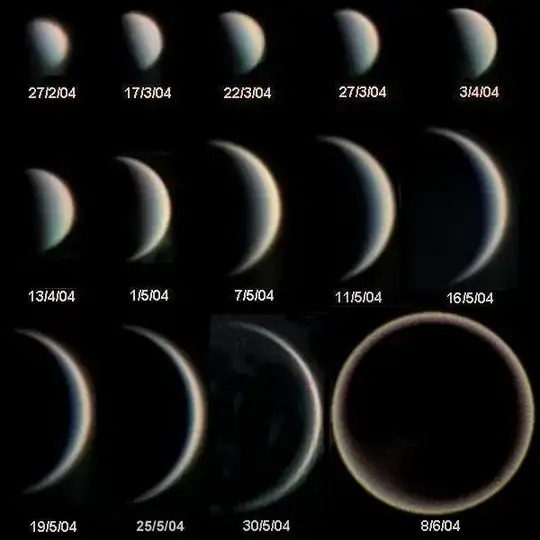Stars give off light and are visible at nighttime but Planets do not give off light . So why are Planets visible at nighttime ?
-
8They reflect sunlight, just like the moon. – AtmosphericPrisonEscape Oct 19 '17 at 22:42
-
2@AtmosphericPrisonEscape It's only seven words long, but that's the answer to the question as it currently appears :) . – Oct 20 '17 at 07:47
2 Answers
Planets and moons reflect sunlight, as mentioned in this comment by AtmosphericPrisonEscape.
Now I'll add a bit more info to make this post more informative :)
That also means that just like the moon, the planets have phases, but they're just too subtle to see with the naked eye, and for any planet further from the Sun than the Earth is, we don't see all the phases. They're full when the planet is furthest from us (on the other side of the Sun), so it'd be hard to tell the phase just from how bright the planet appears.
But through a telescope, you can easily see the phases of Venus, and you can tell it's smaller when it's full (because it's farther away):

Source: Wikimedia Commons
- 2,033
- 16
- 24
-
2Great answer! I've asked the follow-up question How (the heck) was this photo of Venus at inferior conjunction (between us and the Sun) taken? – uhoh Oct 23 '17 at 23:31
This is incorrect. All bodies give off light according to Planck's Law. The amount of emitted light may be small compared with reflected light, or small compared to the sensitivity of your detector.
This may seem like nitpicking, but failure to incorporate emittance when analyzing spectra will lead to sadness.
- 3,813
- 1
- 13
- 17
-
1Technically true. But most planets have their emission peaks in the infrared, so that wouldn't amount to much to the human eye, which is a photometer and not a spectrometer. – AtmosphericPrisonEscape Oct 20 '17 at 15:12
-
1Unless the question gets updated, I'm fairly certain he just means why are the planets visible at night, with an optical telescope or just with my eyes? – Oct 20 '17 at 15:25
-
4Yes, but in the context of the original question, this is so "technically true" as to be misleading. – Florin Andrei Oct 20 '17 at 19:34